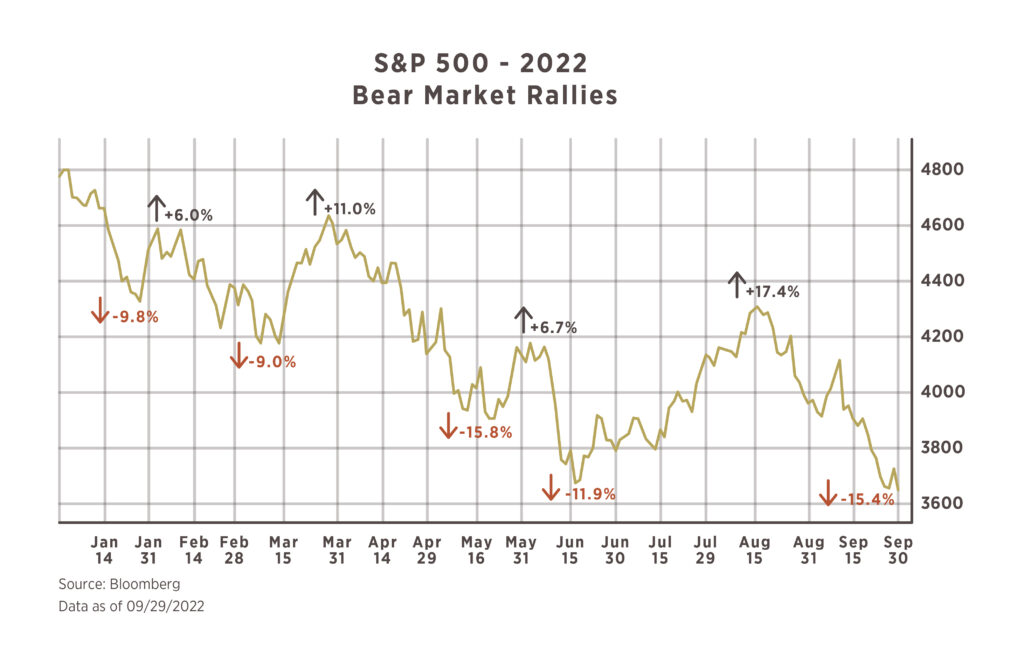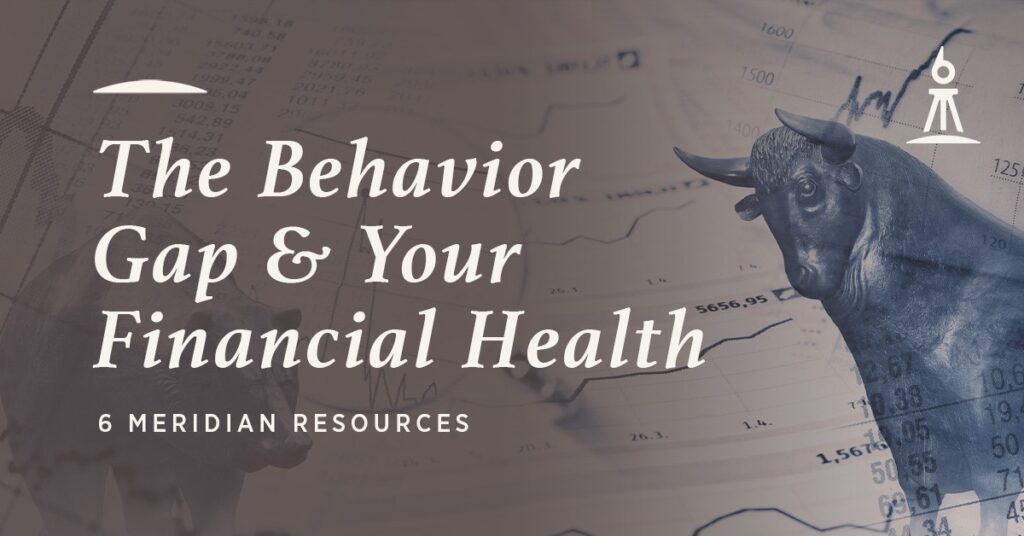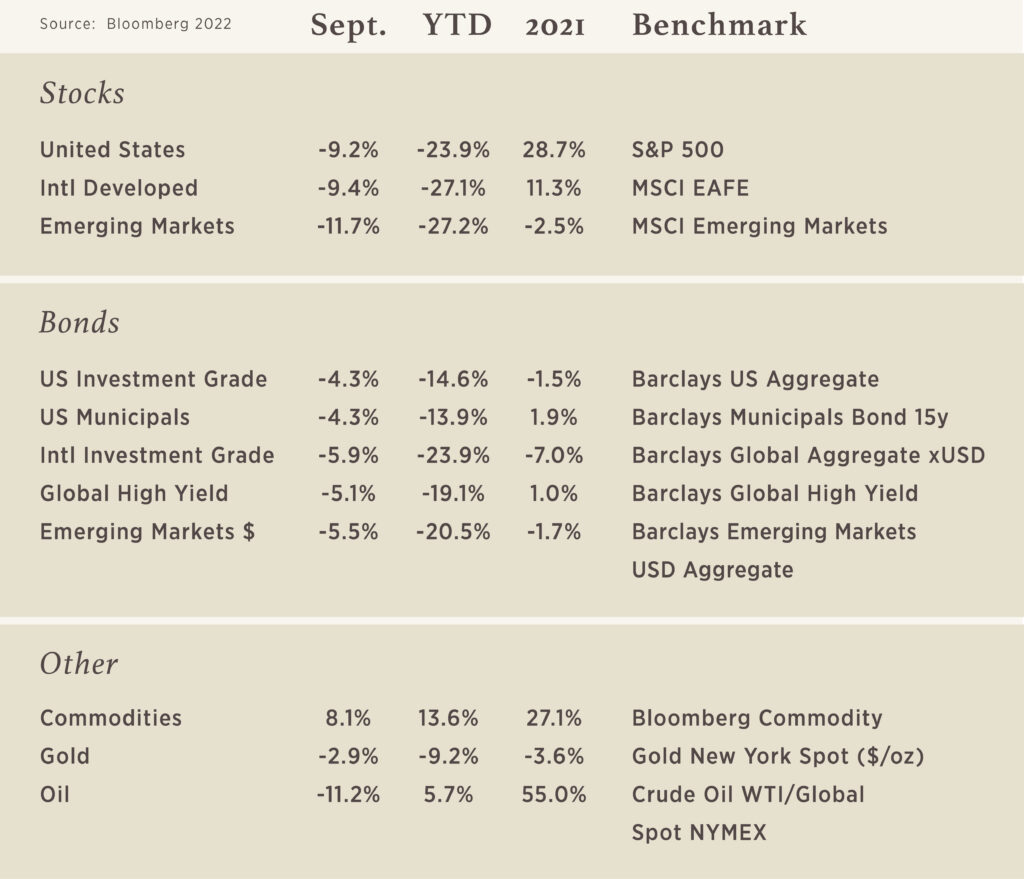Chart of the Month

Dorothy’s infamous line from the Wizard of Oz – “Lions and Tigers and Bears – Oh My!” – fits the 2022 market well. Market terminology does not include lions and tigers, but a bear market is defined by a 20% decline in equities, which for the S&P 500, occurred in mid-June. History would show that brief periods of relief – termed a “bear market rally” – are likely to occur in the midst of a bear market, and 2022 is no exception. As the chart shows, this year has seen 4 bear market rallies, differing in length and rebound. The challenge faced by investors is knowing if the rally is real or fake, and it remains unknown until the rally unwinds, signaling that it was a bear market rally (like in mid-August).


The Behavior Gap and Your Financial Health
How might it affect you?
“It turns out my job was not to find great investments but to help create great investors,” writes Carl Richards, author of “The Behavior Gap.” From increasing our budget mindfulness to taking a steadier approach to investing, Richards has drawn attention to how our unexamined behaviors and emotions can be to our detriment when it comes to living a happy and financially sound life. In many cases, we make poor financial decisions when experiencing panic or anxiety due to personal or widespread events. 1
The Behavior Gap Explained. Coined by Richards, “the behavior gap” refers to the difference between a wise financial decision versus what we decide to do. Many people miss out on higher returns because of emotionally driven decisions, creating a behavior gap between their lower returns and what they could have earned.
Excitement When Stocks Are High. Whether in a bull market or witnessing the hype from a product release, many investors may feel tempted to increase their risks or attempt to gain from emerging investments when stocks are high. This can lead to investors constantly readjusting their portfolios as the market experiences upswings.
Fear When Stocks Are Low. In response to market volatility, investors may feel the need to choose more secure investments and avoid uncertain or seemingly unsafe investments. When stocks are low, a typical response may be to sell and effectively miss out on potential long-term gains.
Short-Term Anxiety and Focus. As humans, viewing aspects of our lives through the lenses of current circumstances is normal. However, one emotional response to any event is letting the moment consume us. Many may find it difficult to think long-term and remember. However, making a rash decision can inhibit the long-term benefit of maintaining a balanced perspective without reactionary behavior.
The market can go up or down at any given point, or it can remain the same. One thing we can control is how we handle our financial strategy. Remembering the likelihood of recovery over time — and the market’s nearly inevitable up-and-down movement — can provide a more logical angle to calm the nerves.
If you’re experiencing financial anxiety in response to the markets, take a breath and remember the potential for long-term gains. Of course, you can and should always reach out to your financial professional for further clarification.
1. BehaviorGap.com, May 16, 2022
